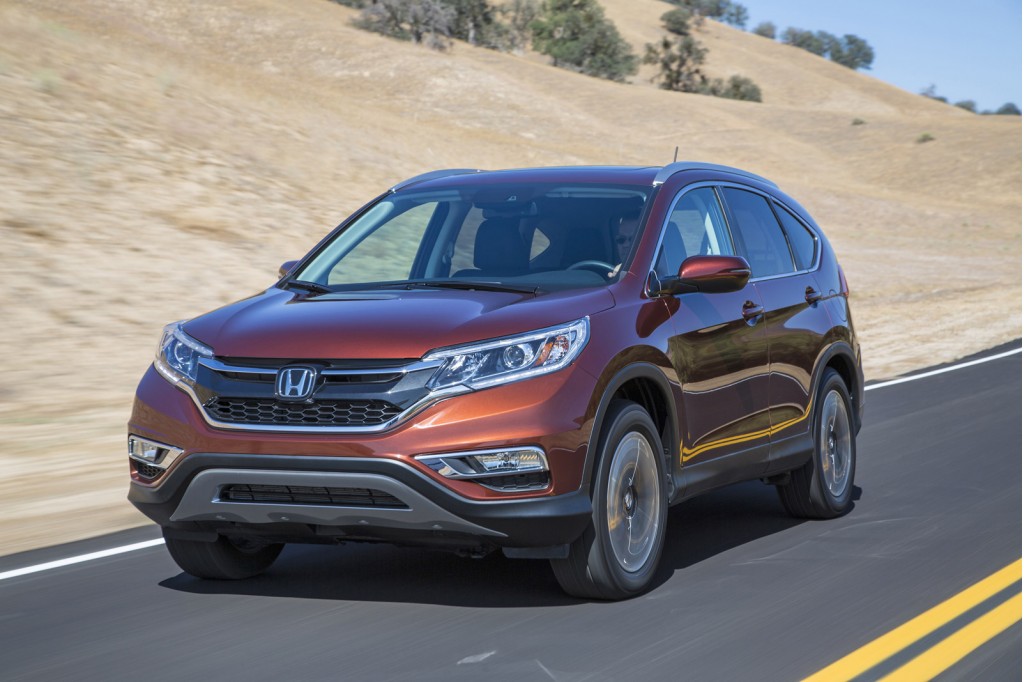With gas prices at their lowest in years, there's no shortage of analysis available regarding their potential effect on sales of fuel-efficient cars.
Looking at sales for calendar year 2014, a new bit of research indicates that sales of green cars did decline somewhat--possibly as a result of not only low gas prices, but other factors as well.
DON'T MISS: Will Oil Price Collapse Because We're Out Of Room To Store It?
"Alternative-powered" vehicles were knocked out of the top 10 categories of new-car sales--as ranked by number of new vehicle registrations--in 2014, according to research firm Experian Automotive.
That category would include hybrid, electric, diesel, and natural-gas powered vehicles.
Entry-level crossovers and full-size pickup trucks were the top two categories by registration, while "upscale-near luxury" models moved up into the top 10.

2015 Honda CR-V
The latter category includes vehicles at the lower end of the luxury segment, such as the BMW 3 Series, Lexus ES, and Mercedes-Benz C-Class.
Last year's increase in crossover utility sales was significant; that class overtook conventional passenger cars for the first time ever.
ALSO SEE: Gas Prices To Rise Again, So Fuel Economy Crucial In New Cars, Consumers Say
It's easy to chalk that up to consumers falling back into old habits in the face of low gas prices, but it's worth noting that crossover sales remained high throughout the year--while gas prices fluctuated.
Much of the utility vehicle segment's growth also includes smaller, more car-like models, which deliver significantly better fuel economy than their larger counterparts.

2015 Toyota Camry Hybrid
The percentage of traditional truck-based SUVs that typically return the lowest fuel economy has also shrunk significantly.
You might say, in fact, that today's crossovers are really just yesterday's wagons with a higher seating position and optional all-wheel drive.
Beyond the shift in vehicle preferences, the fuel economy of all new vehicles is steadily improving across the board, as carmakers work to meet increasingly stricter Corporate Average Fuel Economy (CAFE) standards through 2025.
MORE: Gas Prices Don't Affect Electric-Car Sales: Finally The Word Gets Out
Carmakers have used a host of measures--smaller engines, transmissions with more speeds, lighter weight, and even things like active grille shutters--to boost the gas-mileage ratings of vehicles with conventional powertrains.
Particularly in the case of hybrids, that can diminish the potential savings in fuel costs after accounting for the typically-higher price of a car with an electrified powertrain.
While that may not be good for the sales of specific types of greener cars, it means that--whichever new models people are buying--the overall vehicle fleet is steadily gaining in fuel efficiency.
_______________________________________________












